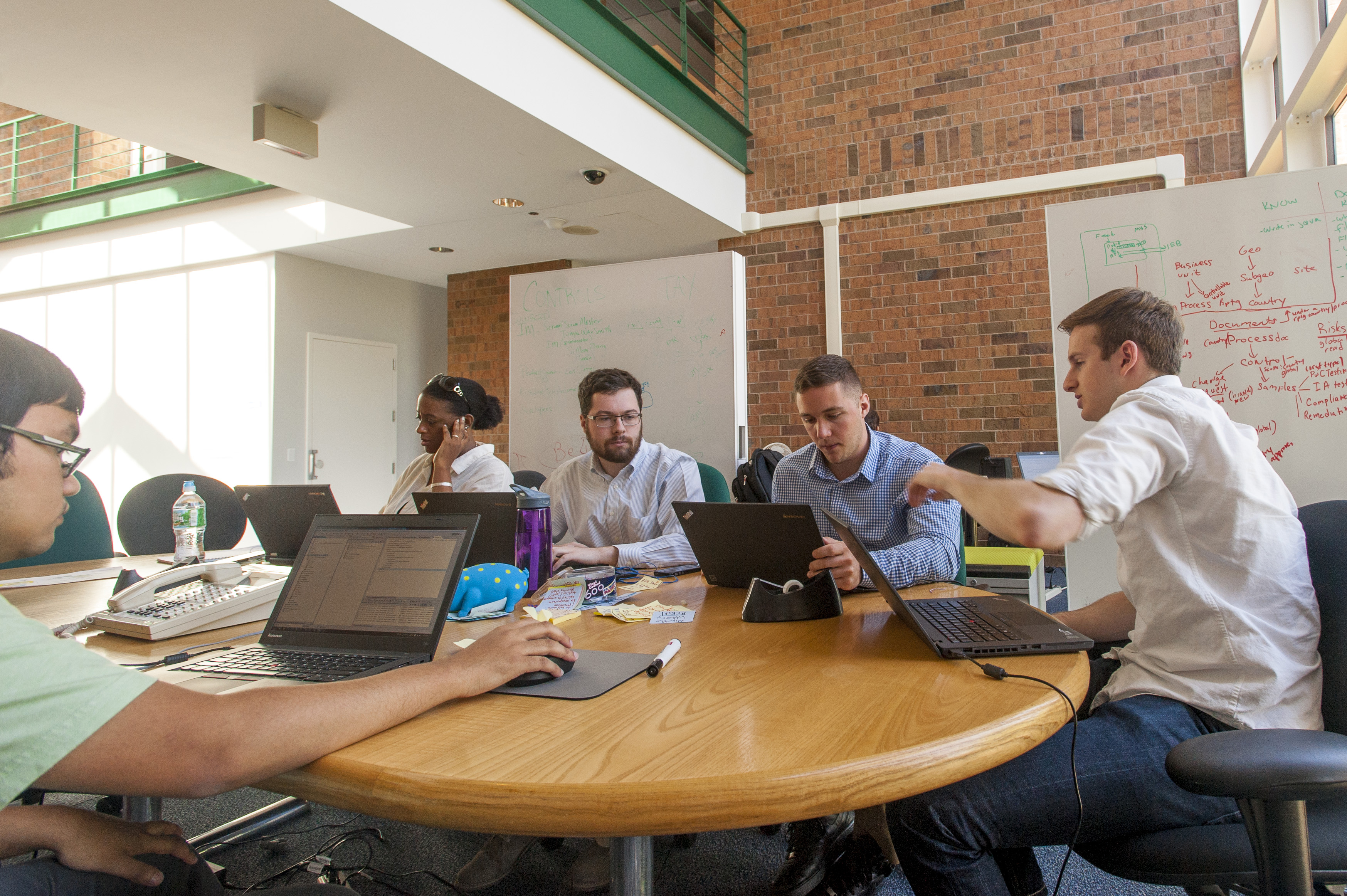A summer internship at a large technology company has shown Jason Barry ’18 (ENG) that not everything can be learned in the classroom.

Barry, who is interning at IBM this summer, values his UConn education, but says he also now knows the importance of real-world experience. At IBM, he’s applying the fundamentals he learned in school to the projects he’s tackling at work, and he’s discovering many new aspects of computer science in the process.
The 20-year-old computer science major is working with the company’s internal transformation and operations team in the information technology unit. This group covers every aspect of IBM’s internal transformation – from the chief information officer’s office to the supply chain, says Christina Harmon, IBM’s U.S. intern program manager.
Barry says the internship has changed what he wants to do in his career.
Until this summer, Barry thought he would be a software developer. However, after working on complex internal projects for IBM, he realized that he likes being the one to decide how technology can improve a business. As a result, Barry now wants to pursue a master’s degree in business administration and become a technology manager.
“It’s definitely sculpted what I want to do,” he says.
Barry knows that he might have to start as a software developer and work his way up the career ladder. He is prepared to do so, and hopes that his educational background, including his minor in engineering management with a concentration in business, will help as he works toward his goal.
The impact of Barry’s internship is not insignificant – but not unusual. Internships can help students gain confidence when entering or exploring a field, and can help them develop a strong professional demeanor and increase their network, says Ana Clara Blesso, assistant director of experiential learning for UConn’s Center for Career Development. Blesso says the Center for Career Development recognizes that internships are important to student development beyond the classroom.
In addition to analyzing computer codes, working on software, and learning IBM-specific programs and practices, Barry said he is learning more about working for a business during his summer internship. He’s seen firsthand how a business must constantly revamp its image to remain successful and relevant.
“Working for a big business is something I’ve never done before,” Barry says.
A resident of Acton, Mass., Barry had to rent an apartment in Connecticut for the summer to be closer to IBM’s office in Southbury, Conn. That, itself, was a milestone moment for Barry. It was his first time living on his own without either family or roommates.
While he primarily works out of IBM’s Southbury location, he is occasionally required to travel to the company’s office in Somers, N.Y. Despite the long drive, it’s a road trip that Barry has come to look forward to because he enjoys working out of that office.
The New York office is unique and interesting because it’s an open space work environment that encourages collaboration, he says. There are no wall dividers, but there are several large screens on the wall that employees can use to share their work.
“No one wants to sit in a stuffy cubicle,” he says.
Barry learned about his IBM internship at UConn’s spring internship fair. He signed up online and participated in a phone interview before learning that he was accepted. He works 40 hours a week and is paid for his services, but does not receive academic credit.
IBM has thousands of interns like Barry stationed at various locations this summer. Harmon, IBM’s intern program manager, says they are working in every area of the company – from marketing and communications to sales and services and computer programming and security. The company’s internship program is run by its recruiting team, and Harmon describes it as “a key feeder program for the next generation of IBMers.”
IBM has 377,000 employees around the world.
“We are one of the top employers, and we want to attract the best talent,” she says.
When Barry’s internship is complete, he will return to Storrs and the school he loves for another year of undergraduate coursework. He will also continue his work with UConn Engineers Without Borders, a nonprofit organization that supports community-driven development programs around the world through partnerships that design and implement sustainable engineering projects.
Barry is also involved in UConn’s mobile application development club.
While the start of school does mean the end of his summer internship, it does not have to mark the end of Barry’s affiliation with IBM: he has been offered the option of extending his internship and continuing his work for IBM from Storrs. It’s an opportunity he says he may pursue.



